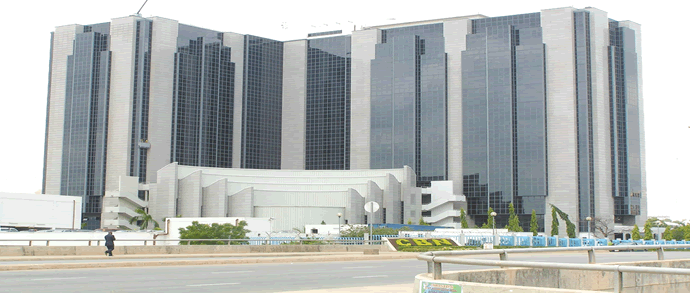[tweet][digg][stumble][Google][pinterest][follow id=”DER29709692″ size=”large” count=”true” ]
By Osaze Omoragbon
The Central Bank of Nigeria (CBN) has moved to strictly enforce the Sustainable Banking Principles (SBP) adopted by the Bankers’ Committee in 2012. The SBP is a set of principles outlined to guide banking activities to ensure the sustainable development of the environment as well as making financial institutions adhere to ethics of sound and principled banking. The principle, according to observers, is expected to serve as a moral compass guiding financial outfits’ operations towards ensuring healthy development of the economy. “The main drivers of the SBP are such that banks should do business to balance profit, social responsibility and environmental issues,” says Dr. Aisha Mohammed, Special Adviser to the CBN Governor on Sustainable Banking. Towards enforcing compliance, the apex bank is partnering with the International Finance Corporation (IFC), which will train CBN management and sustainable advisors on a continuous basis.
Industry watchers had expressed doubt over the success of the initiative. Some analysts had questioned the ability of the bankers to stay through to their commitments especially given prevailing atmosphere of cut-throat competition. “Banks are in the race to outdo one another especially when it comes to the bottom-line,” says a top banker with one of the old generation banks. The apex bank tried to incentivize the banks into embedding the principle in their operations and also dampened expectations by alluding to this fact in its final version of the SBP. “We recognize that not all our signatories are starting the journey from the same place. We thus acknowledge the need for incremental process that focuses on moving as one… we may not get everything right the first time,” the CBN stated.
Indeed, the nation’s apex monetary authority’s prediction is proving true. In a recent circular issued, the CBN frowned at the selective implementation of the SBP especially the violation of human rights principle as it relates to their operations. The banks, the circular states, are violating human and labour rights by stopping the free association of their staff. Commercial banks usually frown at unionism; often stifling their staff rights to individual and collective bargaining. The CBN has threatened to sanction institutions that infract on the principles. However, observers believe most commercial bankers are unscrupulous in their dealings. It is believed that most banks are only interested in doing short-term business where they could reap huge profits. “I see three areas where the banks would likely fail; driving financial inclusion, promoting women’s empowerment and safeguarding human rights,” says Mr. Justus Ajayi, a financial analyst. The reason, according to him, is that banks first and foremost look at the bottom-line before ascertaining if any deal adheres to the principles.
The opinion of most people is that the principle would only be successful if there is zero-tolerance for infraction. Some have recommended aggressive enforcement of the principles such as sanctioning erring banks so as to serve as deterrent to others. The consensus is that American-style sanctions will do the magic. The American regulators since the financial crisis have sanctioned banks that circumvent the rules with the latest being the French bank, BNP Paribas that was fined $8.9billion for evading sanctions placed by the US government on Iran, Sudan and Cuba. “The BNP Paribas case is the way to make big banks play by the rules,” says a top banker with Zenith Bank who pleaded for anonymity. According to him, making the banks fully implement SBP and other laws boils down to incentive; by rewarding those playing by the rules and severely sanctioning violators.
Is the principle all encompassing? Customers don’t think so. They often accuse some unscrupulous bank staff of violating their fiduciary responsibilities. Some bank’s officials have been accused of using their privileged positions to deny services to customers. “I have been denied loan before only for a business partner to secure the same loan just because he is a relative of the manager,” says Mr. Abraham Okoli, CEO of Abjane Petrochemicals. Will such occurrence be reported by the bank as part of the reporting requirement of the principle? Of course, it is doubtful.
The SBP consists of nine over-arching principles which include managing environmental and social risk in business decisions, managing the bank’s own environmental and social footprint, safeguarding human rights, promoting women’s economic participation, promoting financial inclusion of disadvantaged economic groups, meeting the imperatives of good governance, transparency and accountability, supporting capacity building in the sector, promoting collaborative partnerships to accelerate sector progress and reporting to take stock sector progress and attendant needs. It was particularly tailored to cover three critical sectors of the economy; agriculture, oil and gas as well as power sectors. The SBP intends to make stakeholders in the financial sector responsible in the preservation of the environment socio-economic rights.


